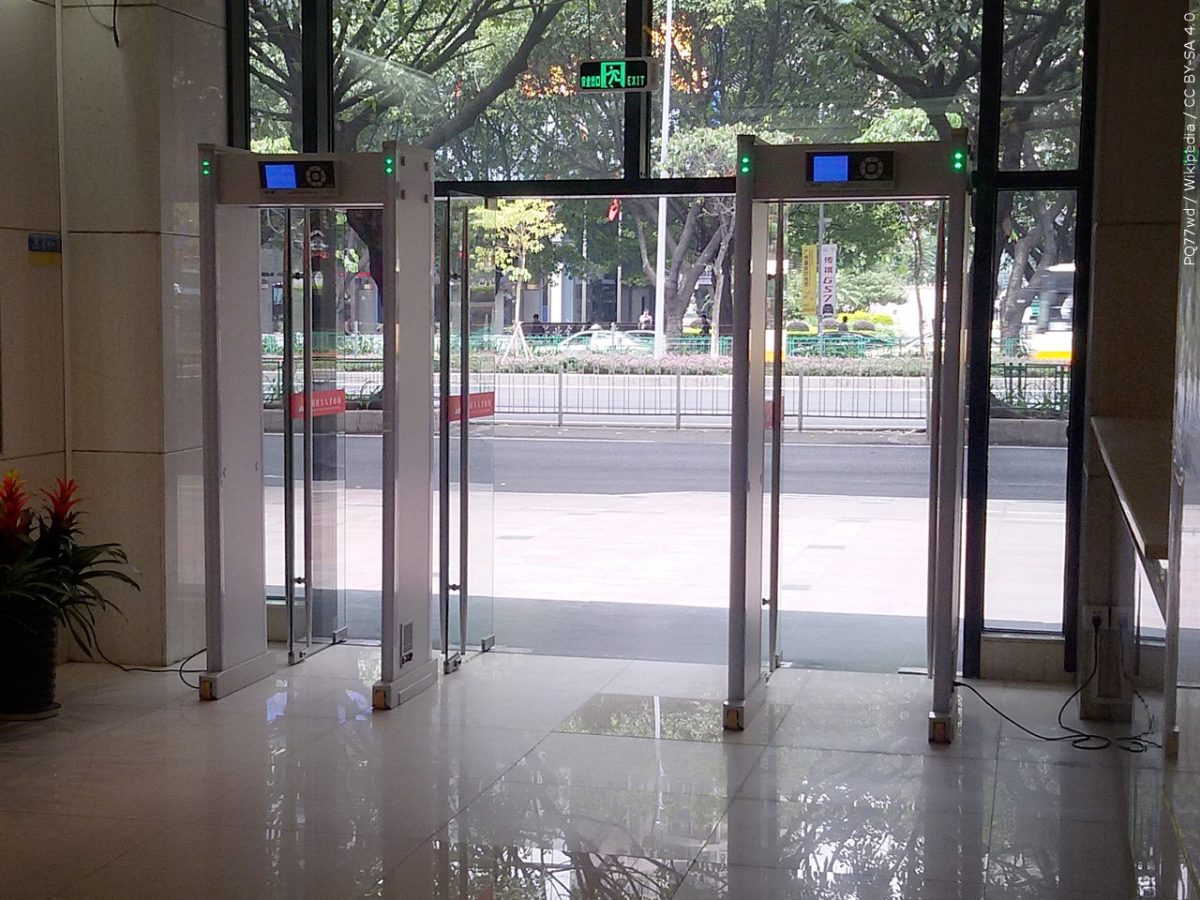Marietta City Schools Superintendent Grant Rivera announced the possible installation of weapon detectors in some Marietta schools. The virtual town hall meeting included Marietta Police Chief David Beam, Deputy Chief Justin Rutland, School Safety Specialist Brian Wallace, Chief Operations Officer Michael Santoro and Sgt. Jared Rakestraw.
Metal detectors would theoretically be spread across four proposed campuses: Marietta Sixth Grade Academy, Marietta Middle School, Marietta High School and Marietta High School’s Woods-Wilkins campus.
Marietta City Schools are looking into adding artificial intelligence equipment to the school cameras that are tailored to distinguish between weapons and regular school materials.
“Artificial intelligence weapons detection can take a lot of different forms,” Rivera said. “The technology is evolving rapidly, but from our perspective, it allows us to integrate seamlessly into the existing cameras we have across all of our school campuses.”
Marietta is not the first Georgia school to consider implementing this type of technology. Gwinnett Public Schools added a similar technology across 20 campuses to protect their football stadiums. The name of the GPS system used is the Evolv Weapons Detection System, and it has advanced sensors that can detect concealed weapons. That includes firearms, knives and explosive devices.
As students or staff walk through, if they are carrying a weapon, the detector will place a red box around the location of the weapon and alert those running the device. This will allow officers to respond quickly to any potential threats. In Gwinnett, there are additional guidelines for attendees, including requirements to carry a clear bag, with certain exceptions, such as diaper bags being allowed but subject to searches.
“AI should be used as a tool; it’s never going to be a standalone system or something that we do away with the human element or the human eye,” said Wesley Hardin, GCSU chief of police. “We set up metal detectors, and even though the metal detectors do all the work, there’s two or three officers or two or three people standing there monitoring the metal detectors. It would be the same thing with AI, but as a tool and as another resource, absolutely, I think it’s a good thing that we need to leverage to the best of our ability.”
The proposal for these extra protection measures is due to there being a mass amount of school shootings happening in recent years. In 2023, there were a total of 346 shootings, while in 2024, there have been 76 shootings so far, with 52 occurring on K-12 school grounds and 24 on college campuses. Georgia itself has had 83 school shootings this year, including the Apalachee High School shooting in Winder, Ga., in September that left four deceased and many parents across Georgia concerned.
Rivera also wants to add more school resource officers to each campus.
“[School Resource Officers] are the first line of defense because no matter what technology we have and no matter what we put in their place, nothing will take the place of what I like to refer to as boots on the ground,” Hardin said. “Even if the AI detects the weapon or an intruder or anything else, you’ve got to send somebody to deal with the problem.”
According to the Atlanta Journal-Constitution, the Dekalb County Schools signed a 4-year lease for the use of Evolv technology for $8 million in 2023. Marietta has not found the exact system the schools will use but believes they will find a vendor that works for the Marietta City Schools in the next 90 days.
“As a concept, I feel like it’s a good idea to be able to recognize weapons as soon as they’re set up on a campus,” said Christine Johary, a sophomore psychology major. “Whether or not it’s for a football field versus classrooms, I feel like it would actually be more useful in the classrooms.”
School resource officers, or SROs, are police academy-trained, and then they take a 40-hour course to be fully equipped with knowledge on how to work with students and staff, protecting school grounds.
“So adding more SROs is always the first thing,” Hardin said. “But our camera systems, facial recognition, AI, anything that we can do to, because a school system or a school itself is considered a soft target, so anything that we can do to make ourselves a harder target, locking mechanisms, intruder alerts, point of access, entry control, visitor management systems, camera systems, anything like that, anything that we can do to just add an extra layer of protection.”
The Marietta City Schools Board of Education still has to approve these suggestions, and according to Hardin, that would likely depend on the cost of this technology across the campuses.
Some students hope the technology will not remain so expensive because of the potential for it to save so many lives.
“Metal detectors already exist at stadiums and stuff, and I’m assuming this is a really expensive technology,” Johary said. “I understand protecting your intellectual property and profiting off the work you did. But this has the potential to do so much good.”
Superintendent Rivera hopes to implement the AI detection for the cameras in the next 60 to 90 days and the additional SROs in the next couple of weeks. The pass-through weapon detection systems will take a few months to make final decisions and get approval.


